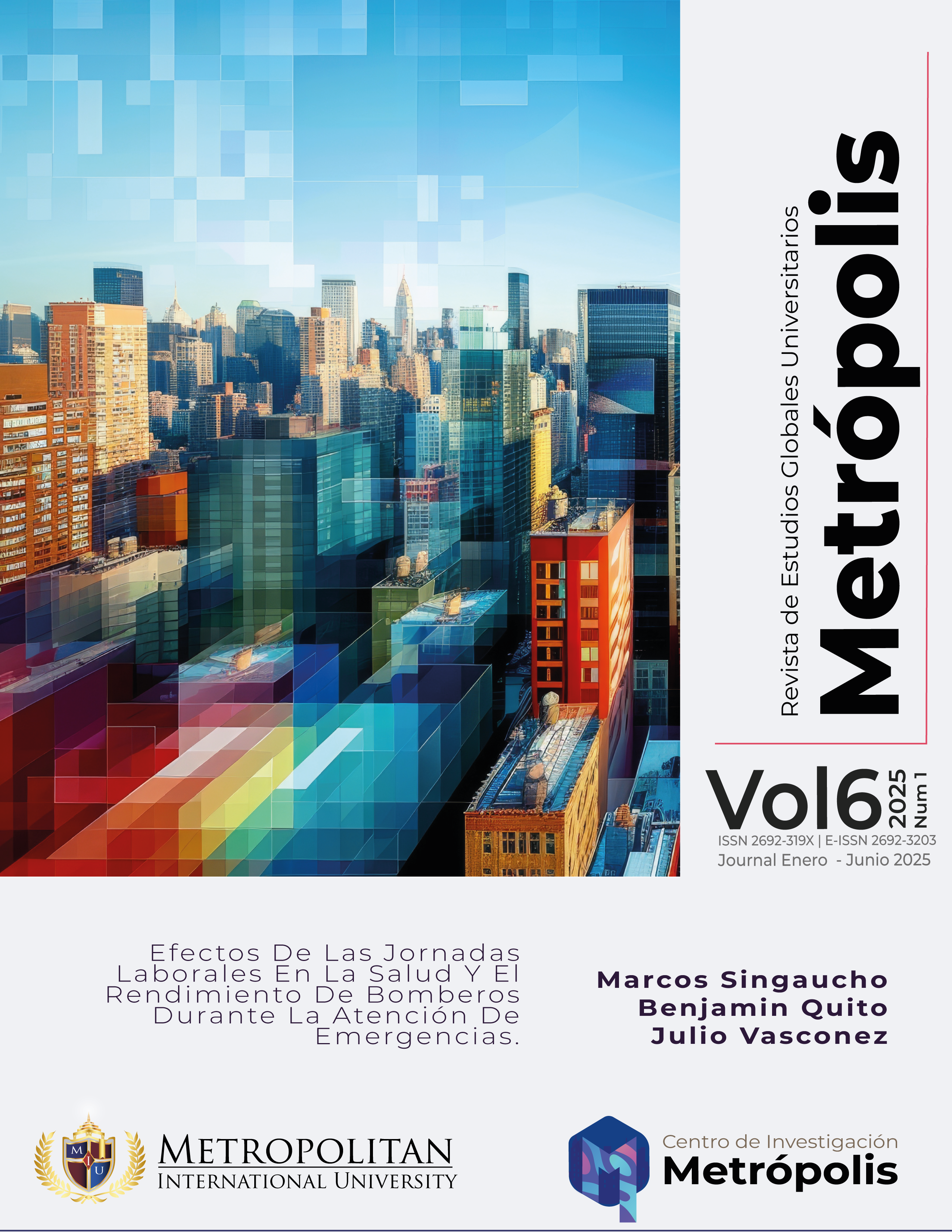Effects of Work Days on the Health and Performance of Firefighters During Emergency Response.
Keywords:
balanced, psychological support programs, proper physical training, regular medical check-upsAbstract
This article discusses strategies to mitigate the negative effects faced by firefighters due to the physical and emotional demands of their work. Key measures include balanced shifts, psychological support programs, proper physical training, and regular medical check-ups. These actions aim to improve both the physical and emotional health of the staff, promoting their well-being and optimizing performance. Stress management and rest policies are essential to ensuring the operational effectiveness of firefighters, who are exposed to high-pressure and life-threatening situations. Firefighters work long shifts of up to 24 hours, with breaks in between. However, the need to stay alert to respond to emergencies significantly affects their health. Their tasks include extinguishing fires, rescuing people, inspecting buildings, and handling hazardous materials. Constant exposure to risky and traumatic situations can lead to chronic stress, anxiety, accumulated fatigue, and physical wear, negatively impacting their quality of life and emotional stability. From a qualitative perspective, it is recommended to assess the well-being of firefighters through physiological, cognitive, and operational tests, alongside interviews to measure stress levels. Understanding their perceptions helps identify specific factors that affect their performance and health. Additionally, continuous medical monitoring and adequate resources to improve physical condition are crucial for ensuring their long-term well-being and mental resilience. The implementation of these strategies has proven to reduce stress and improve firefighter health, contributing to more efficient and safer performance. The adopted measures have led to increased well-being, work satisfaction, and enhanced performance, ultimately improving job satisfaction and safety for firefighters in demanding conditions.

Downloads
Published
How to Cite
Issue
Section
License

This work is licensed under a Creative Commons Attribution-NonCommercial-ShareAlike 4.0 International License.



